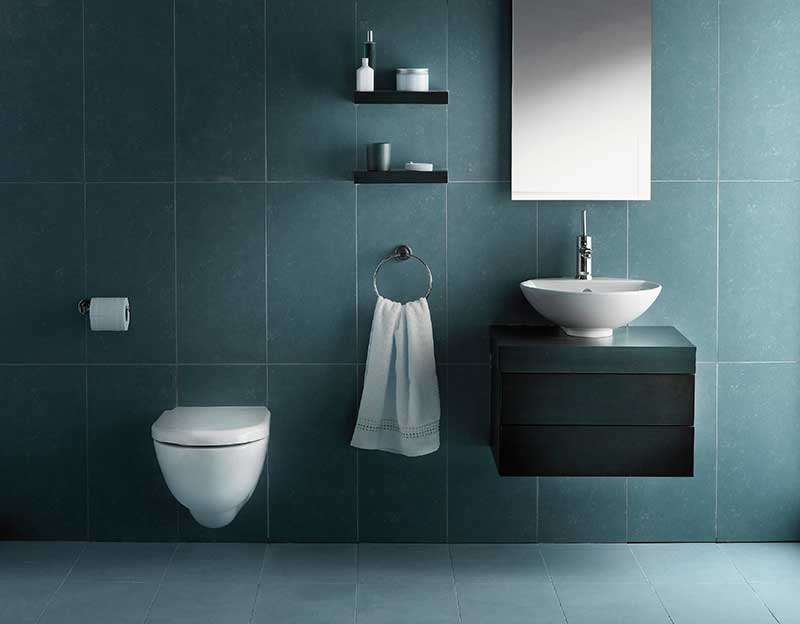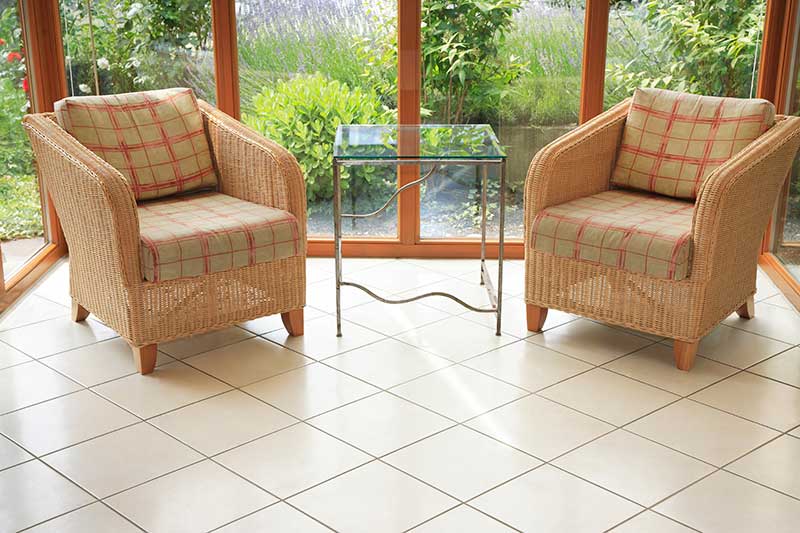As temperatures drop, heating systems go to work – and when warmer weather arrives, cooling systems take over. For mobile homeowners, seasonal shifts can lead to rising energy costs if the home isn’t equipped with an efficient system or properly prepared for changing conditions. Choosing the right heating and cooling solution for your mobile home is essential, regardless of its size. From traditional furnaces to modern options like underfloor heating, there are several ways to keep your space comfortable year-round. Below, we explore some of the most effective systems available and share practical ways to improve overall efficiency.
In this guide, we’ll cover everything you need to know, including:
- The best heating and cooling systems for mobile homes
- Factors for consideration when selecting a system for your space
- Ways to improve efficiency and reduce energy costs
- How radiant floor heating can be used as an efficient heating solution
Heating and Cooling Systems for Mobile Homes
Although mobile homes are smaller in scale, homeowners still have several reliable options for maintaining year-round comfort. Here are some of the most effective heating and cooling systems to consider.
Furnace Heating Systems
Furnaces are a common choice and are available in two primary types: gas and electric. They work by drawing cool air through the ductwork into the unit, where it is heated and then circulated throughout the home. Since furnace systems share ductwork with central air conditioning, newer models are energy-efficient and most contractors are familiar with their installation. However, they can create uneven heating and may circulate dust and allergens throughout the home.
Gas Furnaces
Gas furnaces typically involve higher upfront costs due to the additional piping and more complex installation process required. However, they can be more economical over time, as gas is often a highly efficient fuel source. These systems are also known for heating spaces quickly and effectively.
One important consideration is safety. Gas furnaces produce carbon monoxide, making it essential to install and maintain a carbon monoxide detector. With routine maintenance, a gas furnace can last approximately 20 years.
Electric Furnaces
Electric furnaces are generally more affordable to purchase and install, though long-term operating costs may be higher. Maintenance requirements are minimal, and these systems tend to operate quietly. With proper care, electric furnaces can last up to 30 years, offering dependable performance over time.
Heat Pumps
Heat pumps provide an efficient way to both heat and cool a mobile home using a single system and shared ductwork. In colder months, heat pumps extract warmth from the outside air and transfer it indoors. During warmer weather, the process reverses, removing heat from inside the home and releasing it outdoors.
This dual-functionality makes heat pumps a versatile and energy-efficient option for mobile homeowners.
Cooling and Heating Wall Units
Wall-mounted or ductless systems are another effective heating and cooling solution for mobile homes. These compact units function like small heat pumps and are designed to condition individual rooms.
Unlike window units, wall-mounted systems can be installed on most exterior walls and require only a small opening for piping. Because they don’t rely on ductwork, they experience minimal heat loss, making them highly efficient for targeted climate control.
However, in extremely cold climates, a secondary fuel-based heat source may be required. Wall units are typically more expensive than window units when used for smaller spaces. Replacing an entire whole-home system with wall units can cost up to three times more than installing a centralized system.
Considerations When Choosing Heaters for Mobile Homes
Selecting the right heating system involves more than choosing the most popular or affordable option. Several factors should be evaluated to ensure long-term comfort and efficiency, including:
Space
Space is often limited in mobile homes. While many newer models include ductwork, older homes may not. It’s important to consider how much space equipment like furnaces or boilers will occupy, as they can reduce usable living areas.
Climate
Local climate plays a significant role in system performance. Colder regions require systems to work harder to maintain indoor comfort, which can lead to increased energy usage and higher utility bills.
Insulation
The effectiveness of any heating or cooling system depends heavily on insulation. Well-insulated mobile homes retain heat more efficiently in winter and stay cooler in summer, improving system performance overall.
Zoning Capabilities
Systems with zoning capabilities allow homeowners to control temperatures in specific areas of the home. By directing heat or cooling only where it’s needed, zoning reduces energy waste and helps lower monthly costs.
Budget
Budget is a critical factor when choosing a heating system. While performance and efficiency are important, it’s equally essential to find a solution that fits your financial plan. Consulting with professionals can help ensure you make the best long-term investment.
How to Increase the Efficiency of a Mobile Home Heating System
There are several effective ways to improve the efficiency of your mobile home’s heating system, including:
Adding Wall and Ceiling Insulation
Proper insulation is key to maintaining consistent indoor temperatures. Many older mobile homes lack sufficient insulation, but upgrading wall and ceiling insulation can make a noticeable difference.
Fiberglass insulation is one of the most affordable options and can be installed between joists beneath the home to reduce heat loss from cold air below. Blown-in insulation can also be added to accessible attic spaces. Together, these upgrades can significantly improve comfort and efficiency.
Skirting
Skirting, also known as underpinning, encloses the crawlspace beneath a mobile home. Materials such as vinyl, brick, or cinder blocks help block cold air from entering underneath the home, improving thermal performance.
Use a Radiant System for Efficient Heating
Radiant floor heating is a unique and highly effective heating option for mobile homes. These systems use either electric cables or water-filled pipes installed beneath the floor to gently warm the space above. There are two main types of radiant systems: hydronic and electric.
Hydronic Radiant Heating
Hydronic systems circulate heated water through a network of pipes beneath the floor. The heat rises from the floor upward, warming the space evenly.
While extremely effective, hydronic systems are costly to install, require ongoing maintenance, and need space for a boiler. They are generally best suited for new construction projects.
Electric Radiant Heating
Electric radiant heating systems use heating cables instead of water pipes. These systems are compact, easy to install, and controlled by a smart thermostat for precise temperature management.
Electric radiant heat is well-suited for mobile homes, as it requires no bulky equipment, is maintenance-free, and offers a cost-effective installation option. An electrician is recommended for system wiring, which should be factored into the budget.
What Makes Radiant Heating Good for Mobile Homes
Electric radiant heating is particularly well suited for mobile homes due to its efficiency and versatility. These systems are compatible with a wide range of flooring types and add minimal height to the finished floor.
Both Warmup’s DCM-PRO System and StickyMat System offer a low-profile solution that will only increase the floor height by about ¼” and are compatible with most floor types.
Because the heating system is installed beneath the flooring, the system components are invisible. Aside from the thermostat, all components remain hidden, preserving valuable living space and maintaining a clean, uncluttered look.
Plug-In Cable Kits for Freeze Protection
Warmup also offers plug-in cable kits designed to protect pipes and cables from freezing. While not essential for every home, these systems can be especially beneficial for mobile homes, which are more exposed to outdoor temperature changes.
How Adding Radiant Heating Saves Money
Radiant heating systems eliminate the need for ductwork, reducing heat loss and improving efficiency. They also heat spaces more quickly and operate more effectively at lower temperatures than traditional systems, helping to lower energy consumption.
Another cost-saving advantage is zoning. Smart thermostats allow homeowners to individually control heating by room or area, ensuring energy isn’t wasted on unused spaces. Automated schedules further enhance efficiency and convenience. With a Smart Thermostat, such as Warmup’s 7iE, homeowners can rely on smart technology to ensure their heating system is running optimally and can pair with the MyHeating App to control the system from anywhere.

Insulation and Radiant Heating: The Perfect Combination
While insulation alone can significantly improve indoor comfort, pairing it with radiant heating creates an even more effective solution. Together, they minimize heat loss, eliminate cold spots, and maintain consistent temperatures throughout the home.
Warmup’s Ultralight Insulation Boards are designed to enhance the efficiency of underfloor heating systems. By not letting heat pass through to the subfloor, all heat produced by the radiant heating system is pushed upwards for maximum warmth and efficiency.
Radiant Floors: The Best Way to Heat a Mobile Home
Despite their compact size, mobile homes can be challenging to heat efficiently. Warmup’s electric radiant heating systems offer an ideal solution that doesn’t compromise living space. When combined with proper insulation, radiant heating delivers lasting comfort, making it one of the most effective heating options for mobile homes – especially in colder climates.
Contact us today or visit our website to learn more about electric radiant heating and all the products Warmup offers.
Get a free, instant quote today to find the best Warmup system for your requirements. For more maintenance and installation tips, check out our YouTube channel.





![Thumbnail [200x250]](/wp-content/uploads/Indoor-Systems-Page-Image.png)
![Thumbnail [200x250]](/wp-content/uploads/image-13.png)
![Thumbnail [200x250]](/wp-content/uploads/Projects-Image.png)